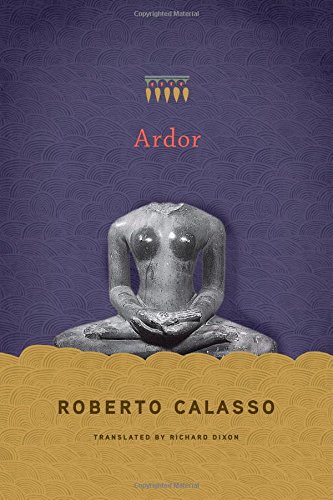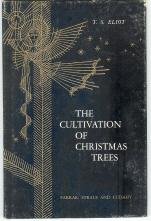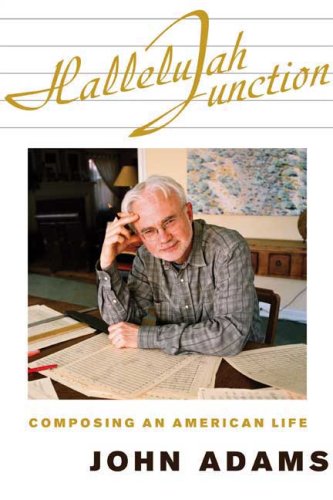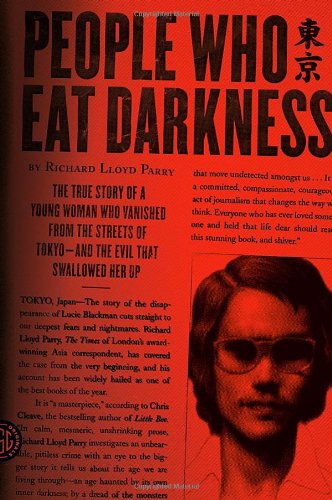Ebook Download Ardor, by Roberto Calasso
Since e-book Ardor, By Roberto Calasso has fantastic benefits to read, several individuals now increase to have reading habit. Supported by the established modern technology, nowadays, it is easy to purchase guide Ardor, By Roberto Calasso Even the e-book is not existed yet out there, you to look for in this website. As what you could find of this Ardor, By Roberto Calasso It will really relieve you to be the first one reading this publication Ardor, By Roberto Calasso and get the advantages.

Ardor, by Roberto Calasso

Ebook Download Ardor, by Roberto Calasso
Ardor, By Roberto Calasso. In undertaking this life, many individuals always aim to do as well as obtain the best. New understanding, encounter, session, and also everything that could improve the life will certainly be done. Nevertheless, many people occasionally really feel puzzled to obtain those points. Feeling the minimal of experience and also resources to be better is one of the lacks to possess. Nonetheless, there is a really simple thing that can be done. This is exactly what your educator always manoeuvres you to do this one. Yeah, reading is the solution. Checking out a publication as this Ardor, By Roberto Calasso and various other references could enrich your life top quality. Just how can it be?
If you really want truly get guide Ardor, By Roberto Calasso to refer now, you should follow this page always. Why? Remember that you need the Ardor, By Roberto Calasso resource that will give you ideal requirement, do not you? By visiting this site, you have actually started to make new deal to constantly be updated. It is the first thing you could start to get all gain from being in a web site with this Ardor, By Roberto Calasso and various other collections.
From currently, finding the finished site that sells the completed books will certainly be numerous, yet we are the trusted site to go to. Ardor, By Roberto Calasso with easy link, easy download, and completed book collections become our good services to get. You could locate as well as utilize the perks of selecting this Ardor, By Roberto Calasso as every little thing you do. Life is consistently developing and also you require some new book Ardor, By Roberto Calasso to be reference consistently.
If you still need more books Ardor, By Roberto Calasso as references, going to search the title and also theme in this website is readily available. You will locate even more great deals publications Ardor, By Roberto Calasso in numerous disciplines. You can additionally as soon as feasible to check out guide that is currently downloaded. Open it and also conserve Ardor, By Roberto Calasso in your disk or gizmo. It will reduce you anywhere you need guide soft data to read. This Ardor, By Roberto Calasso soft file to read can be reference for everybody to improve the skill and capability.

In a meditation on the wisdom of the Vedas, Roberto Calasso brings ritual and sacrifice to bear on the modern world
In this revelatory volume, Roberto Calasso, whom The Paris Review has called "a literary institution," explores the ancient texts known as the Vedas. Little is known about the Vedic people, who lived more than three thousand years ago in northern India: They left behind almost no objects, images, or ruins. They created no empires. Even the soma, the likely hallucinogenic plant that appears at the center of some of their rituals, has not been identified with any certainty. Only a "Parthenon of words" remains: verses and formulations suggesting a daring understanding of life.
"If the Vedic people had been asked why they did not build cities," writes Calasso, "they could have replied: we did not seek power, but rapture." This is the ardor of the Vedic world, a burning intensity that is always present, both in the mind and in the cosmos.
With his signature erudition and profound sense of the past, Calasso explores the enigmatic web of ritual and myth that defines the Vedas. Often at odds with modern thought, these texts illuminate the nature of consciousness more vividly than anything else has managed to till now. Following the "hundred paths" of the Satapatha Brahmana, an impressive exegesis of Vedic ritual, Ardor indicates that it may be possible to reach what is closest by passing through that which is most remote, as "the whole of Vedic India was an attempt to think further."
- Sales Rank: #207843 in Books
- Brand: Calasso, Roberto/ Dixon, Richard (TRN)
- Published on: 2014-11-18
- Released on: 2014-11-18
- Original language: English
- Number of items: 1
- Dimensions: 9.15" h x 1.38" w x 6.28" l, 1.00 pounds
- Binding: Hardcover
- 432 pages
Most helpful customer reviews
52 of 53 people found the following review helpful.
Calasso's Masterpiece -- An Intoxicating and Perfect Book
By Ulrich
"The ṛṣis reached an unattainable level of knowledge not just because they thought certain thoughts but because they burned. Ardor comes before thought."
Wendy Doniger famously hailed Calasso's previous book "Ka" as "[t]he very best book about Hindu mythology that anyone has ever written." After engaging the subject for another fifteen years of intense contemplation, Calasso has returned to it. And the resulting "Ardor," I'm delighted to report after weeks of carefully reading the new English translation, is significantly superior to Ka. I won't limit my praise to books on Hindu mythology; this is the best book I've read this year, and one of the best books on religion you're ever likely to read.
Calasso tells us he originally began writing Ardor as an intended commentary on perhaps the least loved, and least accessible, corpus of ancient Indian religious texts: The Brahmanas, specifically the Satapatha Brahmana. The earliest Vedas, the Rg Veda hymns, can generally be appreciated through the broader lens of religious hymns, while the later Upanishads (which the Brahmanas ultimately segue into) can be appreciated through the lens of philosophy. But the intermediary Brahmanas represent a thorny challenge. What to do with this vast corpus of awesomely complex ancient liturgical analysis and theorizing? How to engage this immense body of thought regarding a vanished practice of complex sacrificial ritual? Many scholars have just condemned the Brahmanas as priestly nonsense, and most people interested in Indian religion skip over the Vedic sacrificial texts into the more congenial later periods of Hindu religion and philosophy, starting with the Upanishads and then the medieval texts. Krishna, Vedanta, ahimsa, all of this is widely preferred to the Vedic sacrificial post, the altar, the animal, the mass of equivalences.
Not Calasso. Rather than dancing about the edges, this is a book about Vedic thought and Vedic sacrificial ritual, focusing on the Brahmanas as composed between the 10th and 6th centuries B.C.E. Calasso's discussions are admirably informed by his engagement with Indological scholars, and he blithely informs us that the Sanskrit translations are his own 'unless otherwise indicated.' The book's overall tone is anthropological in the broad sense, rather than the more literary Ka, and not narrowly philosophical. Many readers might lament the corresponding rarity of stories, compared to Ka. But how could it be otherwise? Sacrificial ritual is not just a story like any other, nor can sacrificial thought (per Calasso) be reduced to a simple positivist description of social behavior. Ardor consists largely of essay after essay which engage different aspects of what, exactly, ritual sacrifice is and what it means, much like the Brahmanas themselves.
The essays are dizzying, incendiary. Each provokes thoughts for days. Each ranges across an amazing variety of subjects. Rarely does Calasso lose his footing or focus. With his background as the head of a prestigious Italian publishing firm, Calasso's prior works are known for tracing connections between 'absolute' modern literature and ancient religious thought. Ardor is full of such observations, and for the most part they are incisive, particularly in the context of the Vedic preoccupation with bandhu, equivalences. For Calasso, bandhu are another form of the equivalences now found in another world of thought which likewise resists reduction, and which over time has been torn from its social ritual context and internalized in the solitary sacrificer/sacrifice: The modern artist. Much of Ardor consists of engaging these types of equivalences and thinking about them deeply. Calasso calls this 'connective thinking,' and contrasts it with 'substitutive thinking.'
This analogical mode of thought, connective thinking, is extremely difficult. In the hands of somebody who is less than an absolute master, it readily degenerates into gibberish or pop song banalities (e.g. "love is ... sacrifice. love is ... forgiveness. love is ... you."). Though Calasso does not say so, a book like Ardor itself is (in keeping with Calasso's view of modern art) analogous to the Vedic sacrifice ... carefully crafted to travel an infinitely difficult path by which human thought mediates the visible and invisible worlds, steeped in guilt and danger, with every step requiring intense concentration and perfect execution. Every essay in Ardor is perfectly calibrated in that manner, and manifests what Calasso terms the 'sacrificial attitude.' The prose is simpler, more direct than Calasso's typical work, as required for the subject's difficulty. Even the artwork is perfectly selected.
It all works beautifully from start to finish. With Ardor, Calasso has helped extricate Vedic thought from its current protective shield of New Age silliness, Hindutva dogma, accusations of Orientalism, feeble 'spirituality,' etc. Ardor's first chapter, entitled "Remote Beings," begins by discussing how remote the Vedic world is from our modern life. Vedic thought is nobody's property -- not that of academics, gurus, Hindutva, politicians. And it's not a lesson on tame 'spirituality' for modern life. But like other ancient human worlds, that immense distance does not mean it is lost or insignificant. It is a total world of vast significance, one that Calasso recovers and brings to life. Ardor is, as the title suggests, an absolute fire within the mind, and by extension the world; precision and soul, to use Musil's phrase (cited by Calasso in this book, but you'll have to read for yourself to find out how).
Although Ardor is less accessible than Ka (less stories, more ritual discussion, more anthropological thought), I can't imagine anybody who enjoys reading, and thought generally, who wouldn't love this book. One of the most fascinating men alive, engaging one of the most fascinating possible subjects, with total intensity. The book is sheer joy, and with any justice will rank as a classic. This isn't a moderate review, but it isn't a moderate book, nor a moderate subject. The point is to intoxicate; Soma is the sacrifice. Books like this are why I read.
Finally, The Paris Review has recently published online a superb interview with Calasso himself -- please go read it! It will give you some background and insight if you are new to Calasso and his work.
24 of 27 people found the following review helpful.
A monument to those that built theirs in the mind
By Kripa Rajshekhar
A great lover of texts has given us a gift. If you play along with this genius, you might detect surprisingly recognizable harmonics. Invisible and unconventional but reflections, without distortion, without a doubt. A deeper appreciation of what he found when he wrote "Ka".
If ever a book made me wish I was a better reader, this would be the one. One is humbled by his range, the ability to connect, the flashes of media - in papyrus here, in mantra there, a university researcher's key-board now, soot covered paper in some other corner.
Borges RE: Kafka “His work modifies our conception of the past, as it will modify the future.” What Borges noted about Kafka is patently the case with Calasso.
“the other one, the one called Borges” - J.L.Borges
Calasso shows in this book that others, many years before Borges, had the same realization - and then went beyond. Connecting precise action with unimaginable intent to access the invisible within and everywhere.
Rereading sections and chapters continue to reward with new glimpses and flashes of brilliance. I would recommend patience and many departures and returns to visit different parts of this tome and realize the pleasures in the book.
9 of 11 people found the following review helpful.
... "The marriage of Cadmus and Harmony" which were both brilliant works on Indian and Greek mythology
By Avinesh
I have read Calasso's "Ka" and "The marriage of Cadmus and Harmony" which were both brilliant works on Indian and Greek mythology. The style of narration was one of the best I have read with a very clear and precise understanding of these cultures and their stories.
Ardor is a bit different. It is a more academic work and often will seem very dry. There are historical contexts to different modern western translations. Roberto Calasso comments on the historical prospective, the language difficulties and the cultural connotations (Aryan-Indian) with occasional comparisons to ancient Greeks and modern German philosophers (Kant and Schopenhauer).
Ardor is a work of Metaphysics from the mouths of the ancients. It is a telling of the Rig Veda and Upanishads. The insights that Roberto brings are unique and is definitely worth the time and effort. This book is for someone intimately interested in Indian Vedantic Philosophy or Hindu culture and Traditions. This book should be complemented with other Indian works on Vedas/Upanishads or works of Indian Philosophy e.g. by Radhakrishnan.
Ardor, by Roberto Calasso PDF
Ardor, by Roberto Calasso EPub
Ardor, by Roberto Calasso Doc
Ardor, by Roberto Calasso iBooks
Ardor, by Roberto Calasso rtf
Ardor, by Roberto Calasso Mobipocket
Ardor, by Roberto Calasso Kindle











